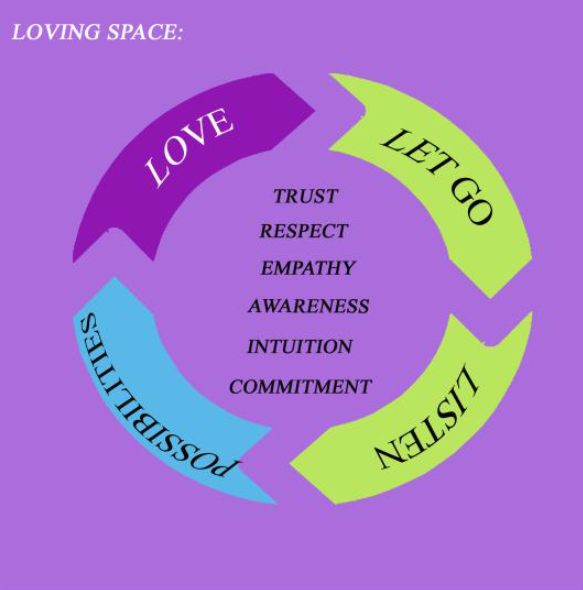A Coaching Model By Jilean Beharry, Destiny Coach, TRINIDAD AND TOBAGO
3L Flow Love, Let Go, Listen… TM Love
The Christian definition of love found in 1 Corinthians 14 of the Holy Bible states:
Love is patient, love is kind. It does not envy, it does not boast, it is not proud. It is not rude, it is not self-seeking, it is not easily angered, it keeps no record of wrongs. Love does not delight in evil, but rejoices with the truth. It always protects, always trusts, always hopes, always perseveres. Love never fails.
It is from this perspective that the word “Love” in this model is used.
According to the Bible, God is love and those who love Him are called to love others as themselves. Against the backdrop of love, the tone is set for the coach, client, and process. Love creates a safe, non-judgmental space for the client. Flowing from a place of love, the virtues of patience, trust, respect, forgiveness, hope, and perseverance/commitment show up. In a loving space, there is a celebration of others, encouragement, empathy, and a belief that all things are possible. Love encompasses the facets of coaching.
A coach who loves the self will love others. This includes practicing respect for self and others by the maintenance and adherence to boundaries, supporting structures, and alignment with values, thus promoting authenticity or truth for both coach and client.
The trust of love permits us to let go. Trust is important both in terms of self, process, and client. A coach must trust that within him/her lies the ability and creativity to help/support the client and also that the process of Coaching will be effective as long as the coach remains “totally present” with the client. The coach must trust that the client is creative and has his/her answers within. In order for the coaching process to be effective, the client must trust the coach as well as his/her own intuition and the coaching process.
The ability to let go and be present for the client is a by-product of love as it does not come from a place of ego or self. Letting go clears the stage for powerful and intentional listening and allows for spirit/intuition to flow freely. In a space where a coach has “let go,” the coaching competencies show up. A coach who has let go has died to themself and is not focused on his/her own thoughts and feelings throughout the process, but is fully present with the client. Letting go also comes from accepting that we cannot change others, only ourselves. We need to epitomize the change we want to see in our world.
For the client, “Letting go” engenders forgiveness, and opens one up to accept responsibility for self. Forgiveness enables one to respond instead of just reacting. As we release others, we also release ourselves. Clients who become aware are challenged to let go of old self-limiting thoughts, beliefs, and habits to embrace the new and the possible.
A coach who has let go by extension opens a space for the client to also let go on many levels. The client becomes more relaxed and is less inhibited about self–expression.
Throughout the session, the coach also lets go by releasing judgment about what is being said and practices self-management by staying focused on the client, which in turn, releases the client to be whoever he/she is and frees up expression and self-acceptance.
In the context of powerful listening, powerful questions emerge, guided by spirit/intuition. Powerful questions create awareness for the client which is essential for any change or action to occur. Also, by really listening, the coach is able to pick up on cues the client gives into how the session is progressing, eg. feelings, body language, voice intonation, etc., as listening does not only involve the ears but is about being fully present. Listening in a loving space enables the coach and client to “hear” the still small voice within, and engenders “right” action.
Listening opens up possibilities and facilitates the acquisition and application of wisdom.
The elements of the Love, Let Go, Listen TM Model work together to create a continuous cycle, a flow that never ends throughout the session and coaching process. With love, all things are possible, love never fails.
Learn How to Create Your Own Coaching Model
Your Coaching Model reflects your values,
philosophies, and beliefs and must communicate who you will coach
and the problems you will solve. Read more about creating your coaching model



